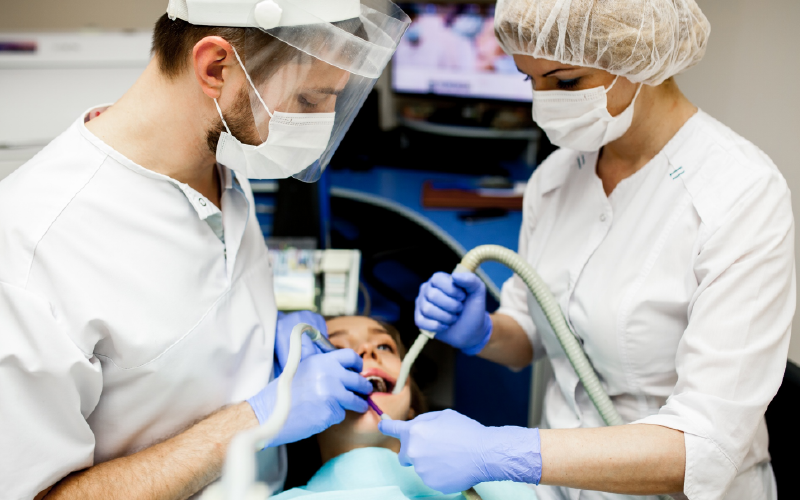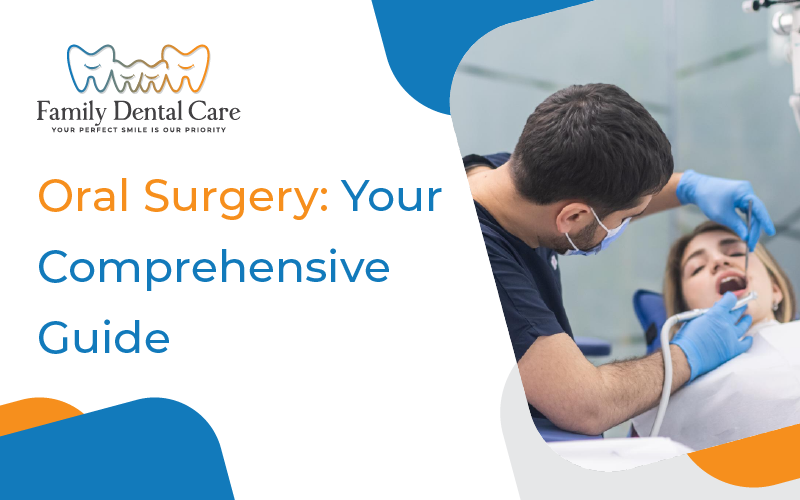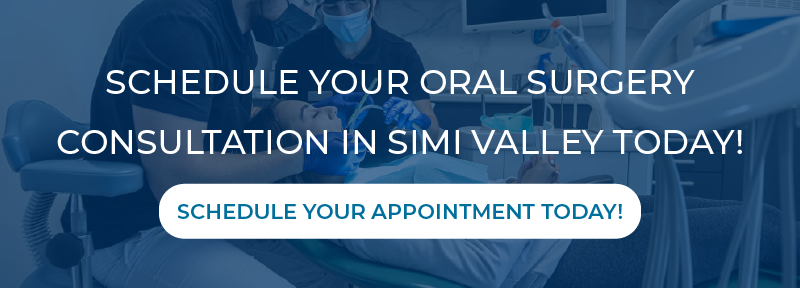Oral surgery encompasses a wide range of procedures performed on the mouth, jaws, teeth, and gums. It’s a specialized field in dentistry, often requiring additional training beyond dental school. Whether it’s for corrective, restorative, or cosmetic reasons, oral surgery can significantly improve a patient’s oral health and quality of life.
What Is Oral Surgery?
Oral surgery encompasses a variety of surgical interventions in the oral cavity and maxillofacial region, often necessitating the expertise of a specialist like an oral and maxillofacial surgeon. These procedures extend from routine tooth extractions to intricate operations addressing the jaw, facial bones, and soft tissues.
They can include dental implant placements, corrective jaw surgeries, cleft lip and palate repairs, and the removal of malignant tumors, thereby covering a broad spectrum of treatments aimed at resolving functional, aesthetic, and health-related issues within the oral and maxillofacial area.
Why Is Oral Surgery Performed?
Oral surgery is performed for a variety of reasons, including-
1. Tooth Loss- Replacing lost teeth with dental implants to restore function and aesthetics.
2. Impacted Teeth- Removing teeth that have not erupted properly, most commonly wisdom teeth.
3. Jaw-Related Problems- Correcting jaw issues such as misalignment or TMJ disorders.
4. Facial Injuries- Repairing facial bone fractures or lacerations.
5. Oral Diseases- Treating diseases affecting the oral and facial regions, such as cysts, tumors, or chronic infections.
Types of Oral Surgery

1. Tooth Extractions
– Simple Extractions- Removal of visible teeth, typically due to decay, infection, or crowding.
– Surgical Extractions- Involves the removal of teeth that are not easily accessible, such as impacted wisdom teeth.
2. Dental Implants
A popular long-term solution for replacing missing teeth involves the placement of a titanium post in the jawbone to support a crown.
3. Corrective Jaw Surgery (Orthognathic Surgery)
Executed to rectify a variety of minor and large skeletal and dental anomalies, such as jaw and tooth misalignments.
4. Periodontal Surgery
Procedures aimed at restoring gum health, such as gum grafts for treating gum recession.
5. Endodontic Surgery
Commonly known as root canal surgery, involving the treatment of tooth pulp and the surrounding tissue.
6. Reconstructive Surgery
For patients who have suffered injuries from accidents, congenital defects, or the removal of tumors, reconstructive surgery can restore functionality and appearance.
Risks and Benefits of Oral Surgery
Like any surgical procedure, oral surgery treatment comes with its set of risks and benefits that should be carefully considered.
– Benefits
** Improved Oral Health- Many oral surgeries are performed to remove decay, infection, or diseased tissue, preventing further complications.
** Enhanced Functionality- Procedures like dental implants and corrective jaw surgery can significantly improve chewing, speaking, and overall mouth function.
** Aesthetic Improvements- Many oral surgeries offer cosmetic benefits, improving the appearance of the teeth, jawline, and facial structure.
Pain Relief- Conditions like impacted wisdom teeth or TMJ disorders can cause significant pain, which can be alleviated through surgery.
– Risks
** Infection- As with any surgery, there’s a risk of infection at the surgery site.
** Nerve Damage- Especially in surgeries involving the lower jaw, there’s a risk of nerve damage, which can result in numbness or a tingling sensation.
** Bleeding- Some amount of bleeding is expected, but excessive bleeding can be a risk in more involved procedures.
** Reaction to Anesthesia- Although rare, some patients may have adverse reactions to the anesthesia used during the procedure.
Preparing for Oral Surgery

Preparing for oral surgery involves several steps to ensure the best outcomes-
1. Consultation- A detailed discussion with your oral surgeon about the procedure, risks, benefits, and any alternatives.
2. Medical History Review- Informing your surgeon about your medical history, including any medications, allergies, or past surgeries.
3. Pre-Surgical Instructions- These might include fasting, arranging for post-surgery transportation, and preparing a recovery area at home.
4. Post-Surgical Care- Understanding the aftercare instructions is crucial for a smooth recovery. This includes diet modifications, medication schedules, and activity restrictions.
Recovery and Aftercare
The recovery process varies depending on the type of surgery performed, but regardless of the specifics, following “Care tips after oral surgery” is crucial for a smooth and effective healing journey.
1. Pain Management- Prescribed pain relievers or over-the-counter medication can help manage discomfort.
2. Diet- A soft or liquid diet may be recommended initially to avoid putting pressure on the surgery site.
3. Oral Hygiene- Gentle oral care practices are crucial to prevent infection and aid in healing.
4. Follow-Up Visits- These appointments allow the surgeon to monitor your healing and address any concerns.
Conclusion
Oral surgery plays a vital role in addressing various dental and maxillofacial issues, offering both functional and aesthetic benefits. While the prospect of surgery can be daunting, understanding the procedures, risks, and benefits can help patients make informed decisions.
With proper preparation, care, and the expertise of a skilled oral surgeon in Simi Valley, most patients can anticipate a successful outcome and enhanced oral health.

